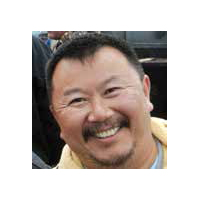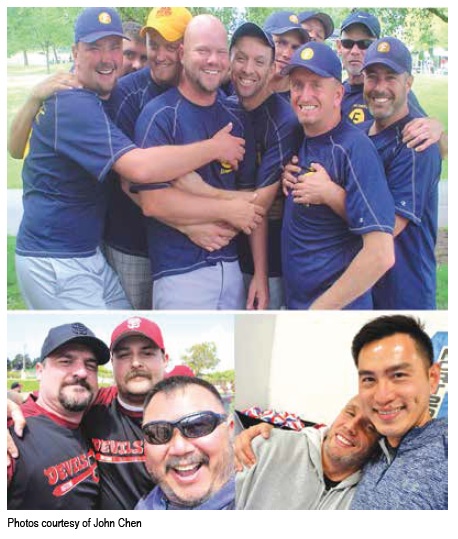
By John Chen–
While some professional sports around the world are being played with no live fans in attendance as a temporary solution to the COVID-19 pandemic, I wonder when organized, team-based amateur sports will be allowed to resume. Recently, I’ve seen lots of people playing social soccer, softball, and volleyball—albeit in small groups. I know, however, that many of us yearn to get back on the field and on the court not just to compete, but also to see and socialize with our teammates, foes, and friends alike. We want that sense of community, that bond, and that sense of belonging back in our lives.
Can things really return to our past normal or will there be a new normal? What would our local, community-based LGBT sports be like if social distancing became the norm? In all my years of playing, organizing, and coaching various LGBT sports teams and organizations, I know our sports community is based on more than just the love for the games, our common bond as LGBT peoples, and the social opportunities and agendas. Sure, we want to win. Sure, we enjoy grabbing a drink with our friends and teammates. And sure, we like having a social structure for being on a team or being a part of an organization.
But what separates us, the LGBT sports community, in my opinion, is the physical support and the meaning behind such intimacy. Yes, like all teams and leagues, we shake hands, high five, pound fists, give hugs, and even give a pat on the butt for that nice play. Who doesn’t? Although these are part of basic sports etiquette, the sports community at large can also do without such physical touching during this pandemic or whenever because they can be easily replaced by socially distance gestures and words that are almost as effective in communicating the same messages.

This is not the case for LGBT sports. Our community thrives on extended intimate physical contact for support, acceptance, love, and identity. For example, when we hug on the field, our bodies often do the bulk of the talking. It’s not just good to see you and to acknowledge a successful moment. It’s I understand you. I am in this with you. We can lean on and count on each other. We hug tighter, longer, and closer. We are not afraid to express our bond. Sometimes we don’t want to let go; there’s a genuine sense of excitement. This physical support is what connects us as LGBT peoples and social distancing threatens to take this away. Will we survive? Yes. Will we adapt? Yes. Will we be stronger? Yes. Will we be the same? Maybe.
If we have to social distance, we will. If we need to social distance, we shall. It would be good to get back out on the field with our friends, our teammates, and even our adversaries just for the duration of our game or match. We can still give the look that says, “I understand. I too have walked and even run miles in your shoes.” This is the best and safest support we can offer one another now. We must be patient until the day we can once again provide real physical support that defines our LGBT sports. Then, I will be sure to give my fellow LGBT sports buddies a longer, stronger, and more appreciative hug on the playing field.
John Chen, a UCLA alumnus and an avid sports fan, has competed as well as coached tennis, volleyball, softball and football teams.
Published on May 11, 2020
Recent Comments